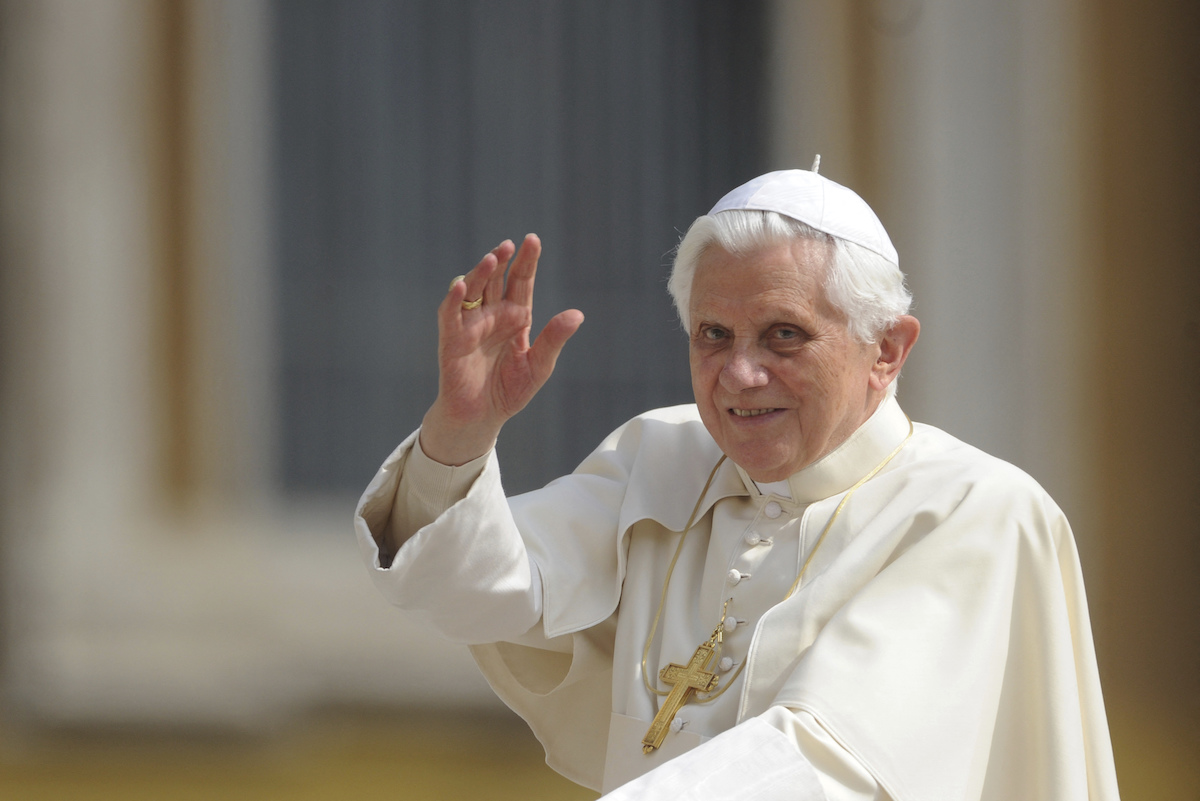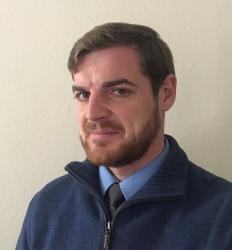“I would like to ask you all for a special prayer for Pope Emeritus Benedict, who is supporting the Church in silence. Remember him—he is very ill—asking the Lord to console him and to sustain him in this witness of love for the Church, until the end.” So spoke Pope Francis at the end of his final Wednesday audience of 2022. Though most of us, myself included, never got to meet Benedict personally, his loss feels like the loss of a close family member. His support for the Church has for years now been in silence, but it is no less palpable for that.
Rightly or no, Benedict XVI will likely be remembered above all for his resignation of the papacy in February 2013 (hard to believe it was practically a decade ago!) I was living in Rome when Benedict made his startling announcement, and of course it was something memorable to be a part of. Standing on the roof of our college in the rays of setting sun, we could see the helicopter that transported the departing pope from the Vatican to Castel Gandolfo outside the city, where his reign officially ended.
In his book-length interview with Peter Seewald, Last Testament, the pontiff emeritus described some reactions to his announcement. “Friends, people, were stopped in their tracks at my news. For them it was serious and groundbreaking; at the moment they were really distressed and felt forsaken.” I wouldn’t say I felt forsaken, but there was certainly a tinge of sadness as the helicopter faded to a speck in the distance and left the city behind. Even aside from his tenure as pope, Benedict was a man of tremendous accomplishments, perhaps the greatest theological mind—and one of the greatest minds, period—of our time. The depth of his thought in matters of religion, culture, spirituality, and more is endlessly rewarding to read. His Opera Omnia, still in the process of compilation and publication, will number 15 volumes.
But this is the Acton Institute blog, after all, and I can’t leave out some thoughts on the mission of promoting a free and virtuous society. Benedict XVI, of course, has an endless variety of teachings on this, but here I want to include one of the first that came to my mind—a passage from his September 2011 speech to the German Bundestag, in which Benedict spoke of the “ecology of man”:
“The importance of ecology is no longer disputed. We must listen to the language of nature and we must answer accordingly. Yet I would like to underline a point that seems to me to be neglected, today as in the past: there is also an ecology of man. Man too has a nature that he must respect and that he cannot manipulate at will. Man is not merely self-creating freedom. Man does not create himself. He is intellect and will, but he is also nature, and his will is rightly ordered if he respects his nature, listens to it and accepts himself for who he is, as one who did not create himself. In this way, and in no other, is true human freedom fulfilled.”
It is indeed ironic that today, as environmental concerns have become a priority of governments, companies, and the culture at large, society has become increasingly willing to accept that man’s nature is whatever we say it is. It is undeniably true that as stewards of creation we cannot simply do to the world whatever we like. By this same token, then, what right do we have to become like gods who can manipulate ourselves at will? As Benedict pointed out, we have not created ourselves, and we cannot recreate ourselves in whatever image we wish. Any efforts to improve society that don’t take this basic nature of man into account are doomed to fail. We would do well to keep the Pope Emeritus’s words in mind.
A few days before the end of Benedict XVI’s papacy, I had the great fortune to attend his last public Mass, the Ash Wednesday Mass in St. Peter’s Basilica. Of course any Mass with the Pope in St. Peter’s is memorable, but this one was historically so. At the end of Mass, the crowd in the basilica broke into over two full minutes of sustained applause for this “simple and humble laborer in the vineyard of the Lord.” Simple and humble though he may have been, the congregation’s tribute was well deserved.

